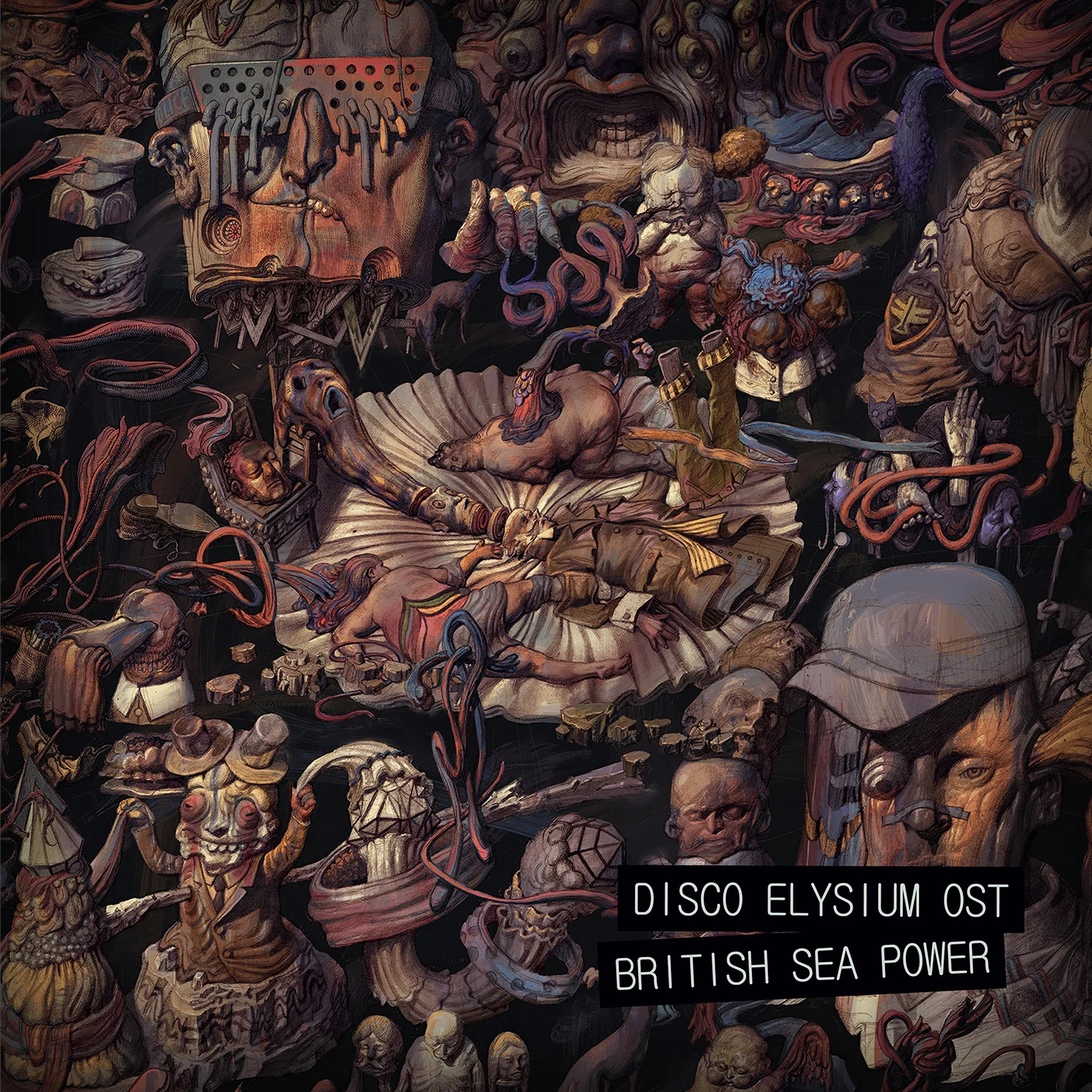Among the plethora of top-tier RPGs in the last five years or so, Disco Elysium stands as one of the more innovative and unexpected critical and commercial hits. It drew a huge range of industry and critical accolades, and the immersive graphics, exceptional narrative and voice-acting, and meaningful decision systems still resonate as strongly today as they did in 2019. Knowing this is likely the last of this world and franchise only adds to the importance of keeping its light alive: the well-documented and complex wrangling at ZA/UM was not pretty, and many key personnel are no longer part of the organisation, even if there are green shoots on the horizon. Still, its impact on our gaming and lives remains, and we are blessed that, beyond the highlights noted above, Disco Elysium boasts an eclectic soundtrack of soul-stirring compositions.
Disco Elysium‘s OST was composed entirely by British Sea Power, an English alternative rock band who have released multiple albums since the turn of the millennium, most of which have a strong Joy Division/Arcade Fire feel, and they use a range of instrumentation effectively across the soundtrack. They were awarded a BAFTA in 2020 for their work on Disco Elysium, beating out OST contemporaries Death Stranding and The Legend of Zelda: Link’s Awakening, among others.
“Instruments of Surrender” is an exceptional starting point. The lone horn-like melody leaves plenty of space, filled with harmony synths and strings, and takes the listener deep into the history and past of Revachol. It does a wonderful job building a sense of wistfulness and hopelessness among the worn-down streets and tattered people in the district of Martinaise. At four minutes in, the lugubrious starting motif has become a powerful wall of sound, a monument to grandiosity and past glory. For an opening track, there’s not a much stronger statement of intent in gaming music.
“Whirling in Rags, 8 AM” flips any expectation of a familiar instrumental ride on its head. The pop sensibilities of this track, with a light beat and a gentle keyboard melody, gradually worm into the soul and get the feet tapping. I particularly liked the deep piano stabs at the halfway stage of the track and the throaty resonance it adds. Like the opener, it’s wistful, but not sorrowful: the chord transitions are firmly rooted in an ascending progression and build to a higher, triumphal intensity in the final minute. The ‘Whirling in Rags, 8 PM” track flips this motif adeptly, where the same theme sits alongside a driving bass run and bass drum beat. You can almost sense the tiredness of the hotel morning fading away as the place becomes ready to rock for the union men of the evening. The final variation, “Whirling in Rags, 12 PM,” strips the theme back to an acoustic piano-led version with oodles of echo and reverb. Rarely does one game location gain so much character from its music. Given how central the hotel/diner is figuratively and literally to the plot, these three tracks could almost serve as the real highlights of the whole soundtrack.
A wall of sound approach permeates further across “Detective Arriving on the Scene,” “The Field Autopsy,” and “Tiger King,” where the huge bank of audio from synth pads to strings becomes an absorbing rumble in the soul. Again, moving through the sights and sounds of Martinaise with these tracks adds to the themes and the world. It’s hard to describe unless you’re in the game experiencing Harry’s life and his story: the broken remains and detritus of the harbor front; the languid, eerie simplicity of the murder scene.
The two-part “Disco Elysium” tracks tie everything together into one emotive blast of nostalgia. Again, simple piano chords drive the ear, underpinned with mammoth slabs of sustained synthesizers. It generates an almost cathedral-like sound, with overlapping chords reminiscent of secular organ work.
There are too many other exceptional tracks to detail fully: “Off We Go Into the Wild” works as another barnstorming wall of sound, backed by a percussive four-beat, but underpinned by another gorgeous and front-of-stage piano melody. “Martinaise, Terminal B” offers an off-kilter discordant drone underlying a simple melody. In game, it works beautifully to highlight Harry’s current state of mind and unease, even if listening as a standalone track is less rewarding. “Electric Vibrations, Totally Transcendent” doubles down on driving disco and synthesized pitch modulation. This is one for the commute, windows down and all. “Rue De Saint-Ghislaine” returns to a probing intensity, a track that keeps its single root chord throughout and never quite resolves, fitting for the place in the game. “Burn, Baby, Burn” takes the intensity a step further, with an ethereal vocal cycle that again recalls Harry’s myriad psyche struggles. Meanwhile, “Le Revacholiere” offers the album’s most wholesome melodic and harmonic match, a gentle descending series of major/minor chords with a simple four-note backing, until these fade to the return of a forlorn synth drawl. Even in the light places, Revachol can never escape oppression.
It feels trite to say the music in Disco Elysium matches the gameplay, but in this case, it goes deeper than that. Given the game bases so many of its systems and interactions on the human condition and Harry’s understanding of it, it’s truly remarkable that the soundtrack mirrors this in so many ways across the full narrative. I’ve rarely been moved by many game soundtracks while actively gaming: reading dialogue, making skill checks, and the like, but Disco Elysium has me by the heart and soul strings with its sound design.
We might never see the like again. Treasure it and hold it and the city close. Replay it and remember the story of Harrier du Bois. Let the music remind you of our humanity and our response to it: No. This is somewhere to be. This is all you have, but it’s still something. Streets and sodium lights. The sky, the world.
You’re still alive.




